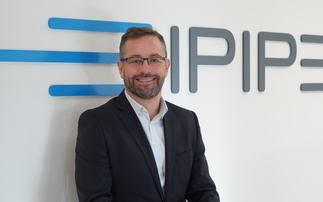Several new underwriting systems are coming to market, revolutionising the adviser's input. Ian McKenna looks at the details.
By being able to outsource the collection of medical information, application data input and case tracking, advisers are able to focus on giving advice and the training requirements are also reduced which has obvious cost benefits for adviser businesses. During 2014 the company expect to add the functionality to allow cases to be placed on risk online.
Xrae is a new system from Assureweb which also produces indicative ratings by providing an indication of whether a case will be accepted at standard rates, rated or declined and the evidence requirements necessary to get a case on risk. Again this reduces the need to approach all the insurers in the market to understand the potential ratings and evidence required for certain cases.
The adviser can connect to a Provider’s underwriters via secure email providing access to underwriting criteria and information which may not be available on XRAE. This information can then be linked to the client case. This can lead to more accurate provider selection and again better manage customer expectations.
The system aims to target the most common conditions. Again this should help reduce abandoned and not taken up cases. The launch date for Xrae which will initially be free to Assureweb users has yet to be confirmed.
Another service for which the release date has yet to be confirmed is Underwrite Me. It is designed to deliver the ability to arrive at an underwriting decision at the quote stage. It is being built to provide direct links to life companies underwriting engines so that it can deliver “buy now” prices without manual underwriting.
It is understood the service is intended to be able to address over 500 medical conditions. The objective of the service is to enable advisers to be able to place a far greater number of cases on risk at the point of sale.
While it will certainly provide more accurate quotes if there are significant levels of disclosure/substantial sums assured the system may not be able to offer a “buy it now” price but will instead indicate the likely rating and detail the evidence that is required (GPR, for example). This is clearly still a very significant step forward from the current position.
This is all delivered to the adviser using a single consistent process which should result in a clearer, more streamlined, customer experience as well as again reducing training overheads for advisers.
The value of a more streamlined process should not be overlooked. It is hard to think of any life office new business system that is particularly customer friendly so this is a significant opportunity for improvement.
A further benefit is that because there is no manual data entry between the UnderwriteMe system and the insurers underwriting engines there is no risk of data entry errors.
Of the three options this is the system that has the greatest potential to minimise abandonment rates as it plans to deliver buy now prices. If more business is placed on risk immediately by definition this should result in less need for pipeline tracking so in this case the issues are being addressed in a different way. A generic version of the system will be free to advisers.
Overall what the market probably needs is elements of each of these propositions. It is important to recognise that Quote+ is the only one of the three systems examined currently available in the market today.
UnderwriteMe certainly represents the greatest leap forward in terms of both change to business process and customer experience. The question is: is it a leap too far? That can probably only really be judged once the live system arrives.
Forward thinking
There is no doubt in my mind that each of the systems examined represent a valuable move forward in an area of the market that has been bereft of innovation for over a decade and where advisers and most importantly consumers have been poorly served in recent years.
These systems should not be seen as competing with each other; rather they are giving advisers the opportunity to choose the option that best suits their ways of working.
Doing nothing should not and must not be an option and if any insurer is not backing one or more of these offerings one could question their commitment to the adviser market and indeed their appetite for improving consumer outcomes.
The services necessary to deliver a vastly improved adviser and consumer experience now exist; the only question is which insurers will embrace them. Before too long this will become a competitive issue with insurers who are only able to offer a last century experience coming under increased scrutiny from both advisers and regulators.
Ian McKenna is managing director of the Finance & Technology Research Centre












